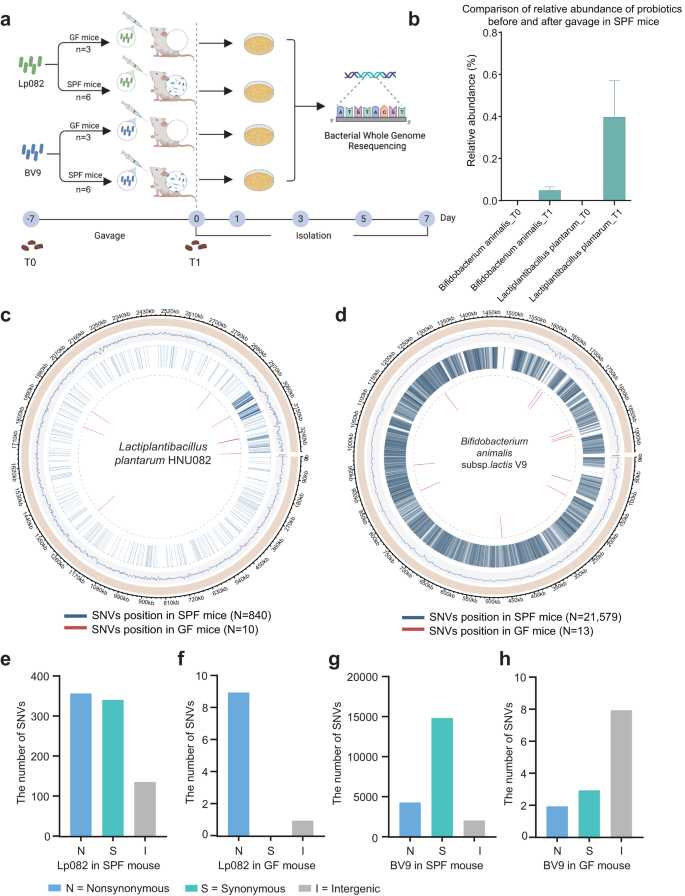💡 This study investigates the genetic evolution of two common probiotic strains, 𝘓𝘢𝘤𝘵𝘪𝘱𝘭𝘢𝘯𝘵𝘪𝘣𝘢𝘤𝘪𝘭𝘭𝘶𝘴 𝘱𝘭𝘢𝘯𝘵𝘢𝘳𝘶𝘮 𝘏𝘕𝘜082 (𝘓𝘱082) 𝘢𝘯𝘥 𝘉𝘪𝘧𝘪𝘥𝘰𝘣𝘢𝘤𝘵𝘦𝘳𝘪𝘶𝘮 𝘢𝘯𝘪𝘮𝘢𝘭𝘪𝘴 𝘴𝘶𝘣𝘴𝘱. 𝘭𝘢𝘤𝘵𝘪𝘴 𝘝9 (𝘉𝘝9), in germ-free (GF) and specific pathogen-free (SPF) mouse models.
📌 The findings reveal that microbial competition is the dominant evolutionary force shaping probiotic genetic composition, with potentially adaptive mutations occurring in response to gut selection pressures.
📌 This study lays the groundwork for genetically engineering probiotics for optimal gut adaptation in vitro, devoid of host-derived selection pressures.
The research aims to distinguish whether host factors or microbial ecological factors primarily drive genetic mutations in these probiotic strains.
📍 Key Findings:
📌 Mutation Frequency:
Probiotic strains exhibit a significantly higher mutation frequency compared to known pathogenic bacteria, suggesting distinct ecological properties.
Lp082 and BV9 strains show a substantial increase in strain-level diversity within a short timeframe.
📌 Evolutionary Patterns:
Microbial competitions within the gut environment emerge as the primary evolutionary force, shaping >99.75% of probiotic genetic composition.
Potentially adaptive mutations induced by hosts were a minority (<0.25%) of the total mutations observed.
📌 Lineage Disparity:
Lineage 2 isolates showed a higher degree of suitability and adaptability within the gut environment, acquiring more single nucleotide variants (SNVs) than lineage 1 isolates.
📌 Factors Influencing Probiotic Evolution:
Probiotics experience minimal interaction with host immunity, resulting in low selection pressure from hosts for genetic mutations.
Intrinsic ecological links with the native gut microbiota and competition for limited resources intensify microbial evolution and mutation rates.
Gut-adapted probiotics may possess mechanisms for rapid adaptation, including high mutation rates and gene transfer.
📌 Implications for Genetic Engineering:
The study provides insights into harnessing in vitro artificial gut ecosystems for genetically engineering probiotics, enhancing their engraftment and performance in the human gut.
This research underscores the dominant role of microbial competition in shaping the genetic evolution of probiotics.
Link to the article: : https://go.nature.com/48WouBS
